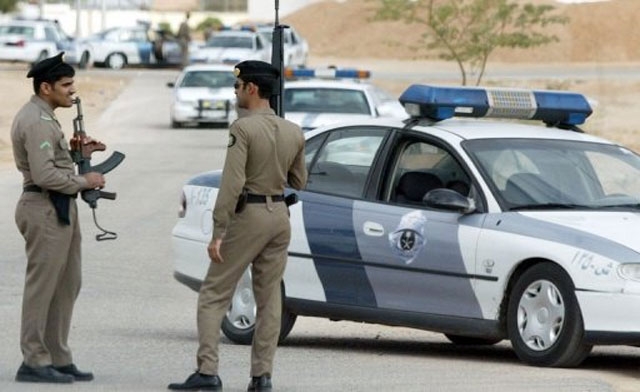
Riyadh, April 8: A special court in Riyadh started a trial of 50 men accused of terror activities in Riyadh yesterday.
The defendants included two Syrians and a Yemeni as well as 47 Saudis.
Joining an Al-Qaeda terror cell in the Kingdom, plotting to assassinate a prominent leader in the country and some US citizens, and planning to blow up US and British embassies, the Al-Mahya Residential Complex in Riyadh and a public security building in Al-Washm were some of the charges against the defendants.
Defendants No. 1 to 5 were present at the hearing on Saturday.
The public prosecutor read out the charges against each of the five defendants. The judge supplied to each of them their respective crime sheets. The judge briefed them on their right to appoint lawyers to defend them at the expense of the government if needed. All defendants except No. 3 authorized their brothers to defend them in addition to lawyers.
Members of the Saudi Human Rights Commission and media were present at the hearing.
The judge refused to grant a defendant’s request to expel reporters from the court.
The public prosecutor also claimed defendants attempted to murder senior police officers, blow up residential complexes in western Riyadh and a residential complex in the Eastern Province. They were accused of issuing religious edicts to incite people against the government, recruitment of youths for terror activities, terror financing and going to violence-hit regions.
Other charges against them included firing at security forces, staying and traveling in the company of Al-Qaeda members, executing terror plans, arranging shelter for terrorists, forging documents to hide the identity of some terrorists, offering medical and combat support for terrorists, possession of weapons including SAM rockets, ammunition, bombs and explosives, and preparation of explosive-loaded cars for terror attacks, participation in terror training camps, smuggling weapons to assist terror attacks in Iraq and going abroad to get military training in addition to spreading sedition and undermining national security.
The most serious charge against Defendant No. 1 was that he was the leader of an Al-Qaeda cell operating in the country. He was alleged to have arranged meetings between Al-Qaeda members Faisal Al-Dukhayyil, Fahd Al-Juwair, Abdul Aziz Al-Muqrin and Defendant No. 15. Another charge against him was that he sheltered Al-Muqrin and Abdullah Al-Rashood, a man wanted by Saudi police, with some members of the Faisal Al-Dukhayyil cell.
The crime sheet also claimed he was one of the terrorists who blew up a police officer in Riyadh. He allegedly used to collect donations for terror activities and also prepared a rented house to serve as a clinic to treat injured terror activists.






Comments
Add new comment